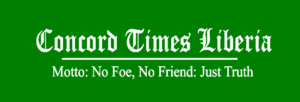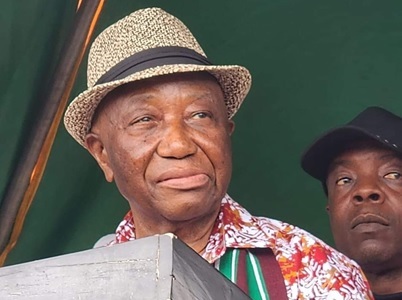Monrovia – Liberian President Joseph N. Boakai, who during his election campaign asserted his commitment to integrity and claimed to rely on loans from commercial banks, is now under fire as a corruption scandal unfolds. The controversy centers around the bailout of a local commercial bank, raising questions about the involvement of influential groups, potentially linked to the ruling Unity Party. Allegations suggest that President Boakai himself may be implicated in this troubling situation.
John S. Morlu, the former auditor general of Liberia and Boakai’s chief fundraiser during the election campaign, is challenging the Boakai administration to publish the list of debtors related to the bailout scandal, similar to what the Liberian Bank for Development and Investment (LBDI) has done. He argues that transparency and accountability to taxpayers demand such openness to clarify whether President Boakai is among the debtors.
In a recent analysis of the bailout, John S. Morlu shed light on the ongoing debate surrounding the US$12 million linked to SIB, a private bank in Liberia. Morlu’s analysis highlights the political corruption and financial mismanagement that have plagued the country’s banking sector.
Morlu argues that the acquisition of First International Bank (FIB) by SIB Liberia Limited in 2016 was influenced by politics and lacked proper business valuation. He emphasizes that bailing out banks is common globally, but it should involve sacrifice from investors and managers, such as equity forfeiture and substantial pay cuts.
The former Auditor General also points out that the financial stress of Liberian banks and the country’s overall risk exposure are caused by banks primarily existing to give out political loans, resulting in bad loan receivables. He questions how a bank in Liberia could struggle with an $8 million USD debt in a country with a $4.3 billion GDP and 5.2 million people.
Morlu challenges the Boakai administration to publish the list of debtors, as the Liberian Bank for Development and Investment (LBDI) did, to clear the air on whether Boakai is a debtor. He believes that transparency and accountability for taxpayers demand such brutal transparency.
Morlu presents a roadmap to educate Liberians on financial management and economic flow, suggesting three options for addressing the issue: syndicating other Liberian or foreign banks to take over SIB Liberia, providing $8.5 million at an 8% interest rate for 10 years to the Government and people of Liberia, or the Government of Liberia receiving a 30.2% equity share in the bank.
The former Auditor General also discusses the impact of a $4 million write-off, suggesting that the debts should be sent to collections and the court, and that defaulters should have their assets seized or be forced into bankruptcy to prevent future loan access.
In conclusion, Morlu’s analysis highlights the need for transparency, accountability, and sound financial management in Liberia’s banking sector. He calls on the Boakai administration to avoid perpetuating








